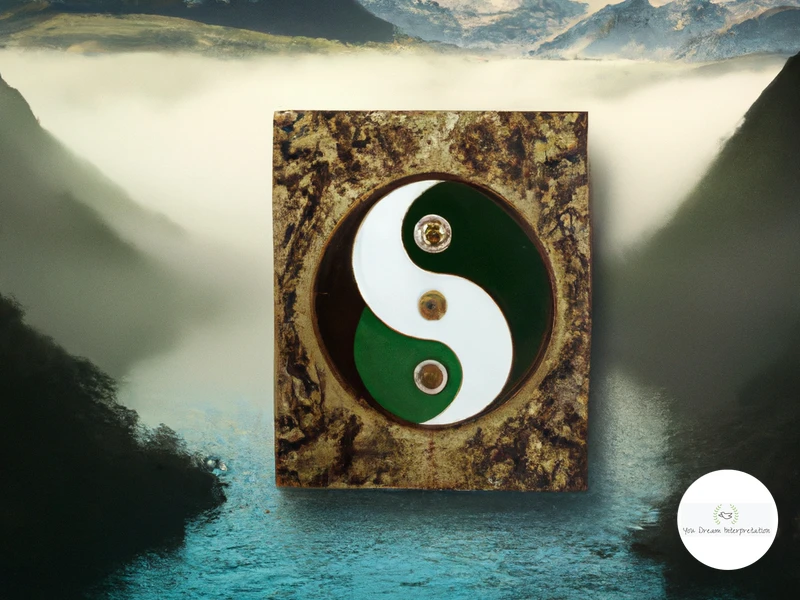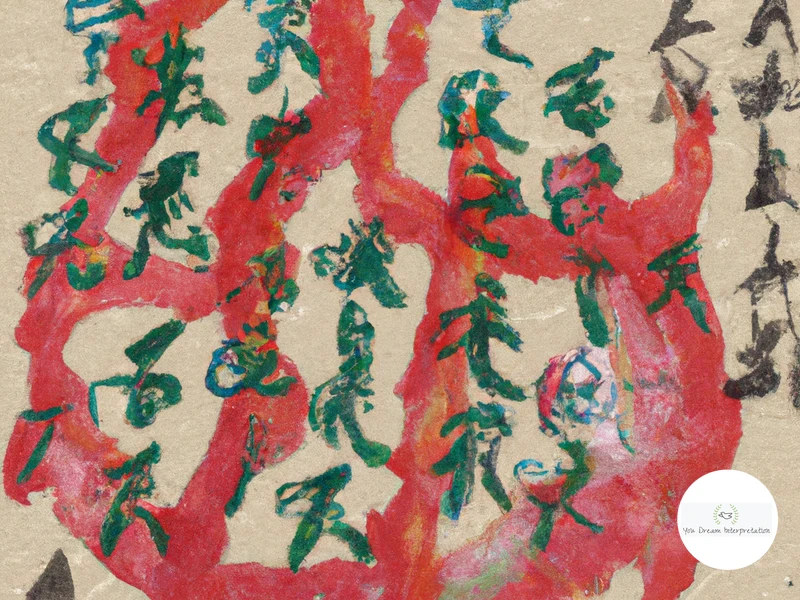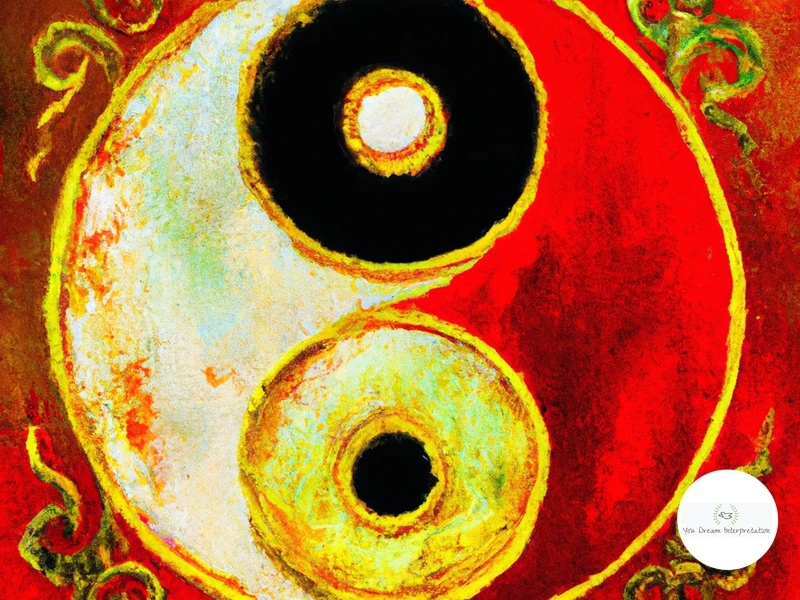In the depths of ancient Chinese philosophy lies a captivating and enigmatic practice known as Numerology. This mystical art form has been intricately woven into the tapestry of Chinese culture for centuries, unravelling countless secrets and unlocking hidden meanings in the realms of astrology, medicine, and philosophy. The origins of Numerology in Ancient China are shrouded in mystery, branching from the profound connections to Daoism and the profound principles of Yin and Yang. Numbers hold immense significance in Chinese Numerology, with each carrying a unique meaning and influencing various aspects of life. Through the study of Numerology in ancient Chinese philosophy, we can delve into the profound impact it has had on concepts such as the Five Elements Theory, the I Ching, Confucianism, and even the practice of Feng Shui. Today, Chinese Numerology continues to thrive, captivating individuals with its timeless wisdom and revealing insights that can be applied to personal life and cultural traditions. Join us on a journey as we unveil the mysteries of Numerology in Ancient Chinese Philosophy and explore its enduring relevance in the modern world.
The Origins of Numerology in Ancient China

The Origins of Numerology in Ancient China can be traced back to its deep-rooted connection with Daoism. Daoism, a philosophical and spiritual tradition, places great emphasis on understanding the natural harmony and balance of the universe. Numerology, with its belief in the interconnectedness of numbers and the cosmos, resonated harmoniously with the principles of Daoism. Daoist scholars explored the symbolic significance of numbers, recognizing that each number held its own distinct energy and vibration. This led to the development of a numerical system that assigned specific meanings to numbers, allowing individuals to interpret and understand the world around them through a spiritual lens. Yin and Yang, the fundamental principles of opposite yet complementary forces, played a significant role in shaping Numerology in Ancient China. These concepts of duality and balance influenced the interpretation of numbers, as they were seen as embodying either Yin or Yang qualities. The combination of Daoism and the principles of Yin and Yang laid the foundation for the origins of Numerology in Ancient China, setting the stage for its profound impact on various aspects of Chinese philosophy and culture.
1. The Daoist Connection
The Daoist Connection holds a significant place in the development of Numerology in Ancient China. Daoism, also known as Taoism, is a philosophical and spiritual tradition that seeks harmony with the natural flow of the universe. Daoists believe in the existence of a universal energy called “Qi,” which permeates all living beings and objects. Numerology aligns with this belief by recognizing the energetic vibrations of numbers and their connection to the cosmic forces. Daoist scholars explored the symbolic meanings of numbers, correlating them with the principles of Yin and Yang, the Five Elements, and the Bagua. By understanding the energetic qualities of numbers, Daoists aimed to discern patterns and gain deeper insights into the workings of the universe. The Daoist Connection highlights how Numerology in Ancient China was not merely a system of divination or fortune-telling but a contemplative practice deeply rooted in the exploration of cosmic harmony and spiritual enlightenment. The interplay between Daoism and Numerology set the stage for the fascinating way in which numbers were understood and applied in various aspects of Chinese philosophy, astrology, medicine, and even daily life.
2. The Influence of Yin and Yang
The Influence of Yin and Yang in Chinese Numerology is profound and pervasive. Yin and Yang are complementary forces that represent the dual nature of existence. Yin embodies qualities such as darkness, passivity, and femininity, while Yang represents light, activity, and masculinity. These opposing yet harmonious energies form the basis of Chinese philosophy, including Numerology. In Numerology, each number is believed to carry either Yin or Yang attributes, which influences its meaning and interpretation. For example, the number one is associated with Yang energy, representing individuality, independence, and leadership, while the number two embodies Yin energy, symbolizing harmony, balance, and cooperation. The interplay of Yin and Yang within Numerology provides a deeper understanding of the inherent nature of numbers and their significance in Chinese culture. It highlights the importance of achieving balance and harmony in all aspects of life, and how numbers can be used as tools for self-reflection and personal growth. The Influence of Yin and Yang in Chinese Numerology is a testament to the holistic nature of this ancient practice and its ability to bridge the gap between the physical and spiritual realms.
The Role of Numbers in Chinese Numerology
The Role of Numbers in Chinese Numerology is multifaceted, with each number carrying its own unique meaning and significance. In Chinese culture, numbers are believed to possess both practical and mystical qualities. Here are some key aspects of the role of numbers in Chinese Numerology:
1. The Meaning of Numbers:
– Number 1 represents independence, individuality, and leadership. It is associated with ambition and new beginnings.
– Number 2 symbolizes harmony, balance, and partnerships. It signifies a cooperative and diplomatic nature.
– Number 3 conveys creativity, communication, and social interaction. It represents self-expression and optimism.
– Number 4 is associated with stability, practicality, and hard work. It represents a strong sense of responsibility and organization.
– Number 5 symbolizes adventure, freedom, and versatility. It signifies a desire for change and adaptability.
– Number 6 represents nurturing, harmony, and balance. It signifies a focus on family, community, and service.
– Number 7 conveys intellectual pursuits, introspection, and spirituality. It represents a quest for knowledge and inner wisdom.
– Number 8 symbolizes success, abundance, and material wealth. It is associated with ambition and financial prosperity.
– Number 9 represents humanitarianism, compassion, and enlightenment. It signifies a selfless and compassionate nature.
2. Numerology in Chinese Astrology:
In Chinese Astrology, numbers are deeply intertwined with celestial influences and astrological signs. The year, month, day, and even hour of a person’s birth are analyzed to determine their life path, personality traits, and compatibility with others. By understanding the numerical aspects of one’s birth chart, individuals can gain insights into their strengths, weaknesses, and potential life outcomes.
3. Numerology in Chinese Medicine:
Chinese Numerology also plays a role in traditional medicine. Certain numbers are associated with specific elements, organs, and bodily functions. Practitioners may use numerological calculations to identify potential imbalances or health issues and prescribe remedies accordingly.
The role of numbers in Chinese Numerology extends beyond mere symbolism. It permeates various aspects of life, influencing personal traits, relationships, and even health. By exploring the significance of numbers in Chinese Numerology, individuals can gain a deeper understanding of themselves and the world around them, unlocking paths to personal growth and fulfillment.
1. The Meaning of Numbers
In Chinese Numerology, the Meaning of Numbers extends far beyond their numerical value. Each number carries its own unique symbolism and significance, shaping various aspects of life. Let’s explore some of the key meanings associated with numbers in Chinese Numerology:
Number 1: The number 1 represents independence, individuality, and leadership. It is associated with ambition, self-confidence, and success. Individuals influenced by number 1 are determined and driven, often taking on leadership roles and pursuing their goals with unwavering determination. They possess a strong sense of self and are not afraid to stand out from the crowd.
Number 2: Harmony, cooperation, and balance are the hallmarks of the number 2. It represents partnerships, diplomacy, and the importance of working together. Those influenced by number 2 are often diplomatic, empathetic, and skilled in navigating relationships. They value peace and harmony and excel in collaborative environments.
Number 3: Creativity, expression, and social interaction define the number 3. It represents self-expression, communication, and artistic endeavors. Individuals influenced by number 3 possess a vibrant personality, are highly creative, and excel in fields such as writing, performing arts, and communication. They have a natural ability to captivate and engage others.
Number 4: Stability, structure, and practicality are associated with the number 4. It represents hard work, reliability, and a focus on building a solid foundation. Those influenced by number 4 are often disciplined, detail-oriented, and excel in professions that require organization and attention to detail. They are reliable and trustworthy.
Number 5: Freedom, adaptability, and adventure define the number 5. It represents change, versatility, and a thirst for new experiences. Individuals influenced by number 5 are adventurous, open-minded, and enjoy exploring different paths in life. They embrace change and are not easily tied down by routines or conventions.
Understanding the meaning behind numbers allows individuals to gain deeper insights into their personality traits, life path, and potential areas of strength. By exploring these meanings, one can embark on a journey of self-discovery, unlocking hidden aspects of themselves and aligning their actions with their true essence. To delve deeper into the significance of numbers in Numerology, you can explore the concept of life path numbers and their impact on career success.
2. Numerology in Chinese Astrology
Numerology in Chinese Astrology plays a pivotal role in unraveling the mysteries of life through the interpretation of numbers. In Chinese Astrology, each individual’s birth date and time are analyzed to determine their astrological sign and the corresponding elements associated with it. These elements include Wood, Fire, Earth, Metal, and Water, each possessing unique characteristics that shape an individual’s personality and destiny. Numerology is used to further refine these astrological readings by assigning numerical values to the elements. For example, the number one is associated with the Water element, bringing qualities of adaptability and introspection, while the number nine is linked to the Fire element, symbolizing passion and charisma. By understanding the numerical influences in Chinese Astrology, individuals can gain insights into their strengths, weaknesses, and potential life paths. It is through this integration of Numerology and Chinese Astrology that individuals can deepen their understanding of themselves and unlock hidden aspects of their personalities, directing them towards a more fulfilling and purpose-driven life. To explore further how Numerology can uncover your personality traits, you can check out the article on ‘Expression Numbers and Personality‘.
3. Numerology in Chinese Medicine
Numerology in Chinese Medicine is an intriguing practice that associates numbers with the human body’s energetic systems. In this ancient practice, each number is believed to correspond to a specific organ or aspect of health. By understanding these numerical associations, practitioners can gain insights into an individual’s overall well-being and identify potential imbalances.
The application of Numerology in Chinese Medicine follows a unique system where numbers 1-9 are connected to different organs. For example, the number 1 is linked to the liver, representing its functions, strengths, and weaknesses. Similarly, number 4 is associated with the heart and its related aspects of vitality and emotional well-being. This correlation between numbers and organs creates a framework that acts as a diagnostic tool in Chinese Medicine.
By examining an individual’s birth date, Numerology in Chinese Medicine can provide valuable information about their health tendencies and potential areas of vulnerability. These insights can guide practitioners in developing personalized treatment plans that target specific imbalances and promote overall wellness.
Numerology in Chinese Medicine emphasizes the significance of harmony and balance between the organs. By evaluating the numerical relationships between different organs, practitioners can identify potential disharmonies that may manifest as physical or emotional symptoms. This approach enables them to address the root causes of health issues, fostering a holistic approach to healing.
Numerology in Chinese Medicine offers a unique perspective on health and well-being. By uncovering the numerical associations between organs and aspects of the body, this practice provides insights into an individual’s constitutional tendencies and guides personalized treatment approaches to restore balance and vitality. Incorporating Numerology into Chinese Medicine adds a fascinating dimension to the ancient practice, enriching the understanding and application of traditional healing methods.
The Impact of Numerology on Chinese Philosophy

The Impact of Numerology on Chinese Philosophy is far-reaching, permeating various schools of thought and shaping fundamental concepts in Chinese culture. One of the key areas where Numerology has made a significant impact is the Five Elements Theory. This theory, also known as Wu Xing, is a cornerstone of Chinese philosophy and medicine. It categorizes the elements of Wood, Fire, Earth, Metal, and Water, and assigns specific numbers to each element. Through Numerology, these numbers are used to determine the interactions and relationships between the elements, providing insights into balance, harmony, and cycles of change.
The I Ching, or Book of Changes, is another profound aspect of Chinese philosophy that incorporates Numerology. The I Ching is an ancient divination text that utilizes a set of symbols known as hexagrams, which are composed of six broken or unbroken lines. Each line corresponds to a specific number, and the arrangement of these lines creates a numerical pattern that is interpreted through the lens of Numerology. The I Ching serves as a guide, offering wisdom and insights into life’s experiences and decision-making processes based on the interpretation of these numbers.
Confucianism, a major school of thought in Chinese philosophy, also embraces Numerology. Confucius believed in the importance of balance and harmony in all aspects of life, and Numerology provided a framework for understanding this balance. The numbers associated with Confucianism were seen as representing specific virtues and ethical values, guiding individuals in their pursuit of moral conduct and social harmony.
Numerology’s impact on Chinese Philosophy is undeniable, intertwining with concepts of balance, harmony, divination, and ethics. It continues to shape Chinese culture and philosophy, offering profound insights into the mysteries of life and the interplay of numbers with the human experience and the natural world. (Source: [Decoding Life Path 4](/decoding-life-path-4/))
1. The Five Elements Theory
The Five Elements Theory is a fundamental concept in Chinese philosophy that is closely intertwined with Numerology. According to this theory, all things in the universe can be categorized into five elements: Wood, Fire, Earth, Metal, and Water. Each element is associated with specific qualities, energies, and attributes. In Numerology, these elements are further connected to numbers, creating a deeper understanding of their symbolic meanings. Let’s explore the correlation between the Five Elements Theory and Numerology:
1. Wood: Wood represents growth, vitality, and expansion. It is associated with the numbers 3 and 4, which embody creativity, inspiration, and stability. Individuals with a strong connection to the Wood element may exhibit characteristics such as flexibility, ambition, and a desire for personal growth.
2. Fire: Fire symbolizes passion, transformation, and energy. It is connected to the numbers 9 and 1, which represent leadership, charisma, and motivation. Those influenced by the Fire element may possess qualities such as enthusiasm, charisma, and a burning desire to make a difference.
3. Earth: Earth is associated with stability, nourishment, and groundedness. The numbers 5 and 2 are aligned with the Earth element, representing practicality, patience, and nurturing qualities. Individuals influenced by the Earth element may exhibit traits such as reliability, pragmatism, and a strong sense of responsibility.
4. Metal: Metal symbolizes strength, focus, and precision. It is connected to the numbers 6 and 7, which represent intelligence, analysis, and organization. Those influenced by the Metal element may possess qualities such as determination, discipline, and a sharp attention to detail.
5. Water: Water represents adaptability, intuition, and emotional depth. The numbers 8 and 1 are associated with the Water element, embodying wisdom, spirituality, and intuition. Individuals influenced by the Water element may exhibit traits such as empathy, intuition, and a deep connection to their emotions.
By understanding the Five Elements Theory and its correlation with Numerology, individuals can gain valuable insights into their own characteristics, strengths, and weaknesses. This knowledge can be utilized for personal growth, making informed decisions, and creating a harmonious balance in various aspects of life.
2. The I Ching and Numerology
The I Ching, also known as the Book of Changes, holds a special place in Chinese philosophy and serves as a nexus between Numerology and ancient wisdom. This revered text embodies the principles of both divination and Numerology, acting as a guide for understanding the cyclical nature of life and the interconnectedness of all things. The I Ching consists of 64 hexagrams, each composed of six stacked lines representing Yin and Yang. Each hexagram carries a unique numerical value and corresponding interpretation that can be deciphered through Numerology. By consulting the I Ching, individuals can gain insights into their current situation, make informed decisions, and navigate the complexities of life. Numerology plays a crucial role in the I Ching, as the hexagrams and their corresponding numbers provide a framework for interpreting the messages and guidance of the text. Through the use of divinatory tools such as yarrow stalks or coins, one can generate hexagrams and unlock the wisdom embedded within the numerical patterns. The combination of Numerology and the I Ching allows individuals to tap into the cosmic energies and gain profound insights into the ever-changing nature of existence. This integration of Numerology into the I Ching brings a deeper layer of meaning and divination to the practice, further solidifying its importance in ancient Chinese philosophy.
3. Confucianism and Numerology
Confucianism, a cornerstone of ancient Chinese philosophy, also had a significant influence on Numerology in Ancient China. Confucian teachings emphasized the importance of order, harmony, and ethical conduct in both individual lives and society as a whole. Numerology provided a framework through which these principles could be understood and applied. Confucian scholars integrated Numerology into their teachings, recognizing the power of numbers to reveal insights about human nature and relationships. They believed that by understanding and aligning with the numerical patterns of the universe, individuals could cultivate virtues such as benevolence, righteousness, and propriety. Numerology also played a role in the practice of selecting auspicious dates for important events, such as weddings or business ventures, based on the harmony of the numbers involved. This integration of Numerology into Confucianism not only elevated the significance of numbers but also deepened the understanding of ethical behavior and the importance of balance and harmony in personal and societal relationships. The influence of Confucianism on Numerology in Ancient China further solidified the practice as an integral part of Chinese philosophy and culture.
The Importance of Numerology in Feng Shui
The Importance of Numerology in Feng Shui cannot be overstated, as numbers play a fundamental role in the practice of this ancient Chinese art of harmonizing and optimizing the energy flow in living spaces. In Feng Shui, certain numbers are considered auspicious and believed to bring good fortune and positive energy, while others are seen as inauspicious and are best avoided. This belief stems from the notion that each number holds a unique vibration that can influence the energy of a space.
1. Numbers and Feng Shui Principles: In Feng Shui, numbers are intricately linked to specific principles and elements. For example, the number 8 is highly regarded in Chinese culture as it is associated with wealth and abundance. In Feng Shui, this belief is translated into the principle of incorporating the number 8 in various forms, such as using eight objects or arranging furniture in groups of eight, to attract prosperity and success. Similarly, the number 9 is considered a powerful and auspicious number representing completeness and eternity, making it ideal for enhancing overall harmony and balance in a space.
2. Applying Numerology in Feng Shui: In the practice of Feng Shui, numerology is applied in various ways to create harmonious environments. One common technique is to analyze the numbers associated with a particular house or building to determine its energetic qualities. This analysis includes examining the numbers in the address, the floor plan, and even the birth dates of the occupants. By applying numerology in this manner, Feng Shui practitioners can identify potential imbalances and offer remedies to enhance the flow of positive energy.
Understanding the importance of numerology in Feng Shui allows individuals to make informed decisions when arranging their living or workspaces. By utilizing the power of numbers, it is believed that one can create a harmonious and supportive environment that promotes well-being, prosperity, and overall positive energy flow. So, whether it’s choosing a new home, arranging furniture, or even selecting decorative objects, incorporating numerology into Feng Shui practices can be a valuable tool in maximizing the energetic potential of a space.
1. Numbers and Feng Shui Principles
Numbers and Feng Shui Principles are intimately connected, as numbers hold significant power and influence in the practice of Feng Shui. In Feng Shui, the arrangement of your surroundings is believed to affect the flow of qi (energy) and consequently, your well-being and fortune. Different numbers are associated with specific meanings and energies, making them important considerations when applying Feng Shui principles to your home or office. Let’s explore some of the key numbers and their implications in Feng Shui:
1. Number 1: Associated with new beginnings and leadership, the number 1 represents independence, creativity, and ambition. It is considered auspicious and is often associated with career success. Placing a strong focus on the south area of your space can enhance the energy of this number.
2. Number 2: Symbolizing balance and harmony, the number 2 represents partnerships, cooperation, and relationships. It is associated with the northeast and southwest areas, which are related to love, marriage, and nurturing. Balancing and harmonizing these areas can promote harmony and stability in relationships.
3. Number 3: Vibrant and lively, the number 3 is associated with growth, creativity, and self-expression. It is related to the east and southeast areas, which are connected to personal development and abundance. Using the number 3 in these areas can stimulate creativity and abundance.
4. Number 4: In Feng Shui, the number 4 is considered unlucky as it sounds similar to the word for death in Chinese. As a result, the number 4 is often avoided in building addresses, room numbers, and the arrangement of objects. However, it is important to note that beliefs may vary, and some practitioners may assign positive meanings to this number by considering other factors.
5. Number 5: Associated with adventure, change, and flexibility, the number 5 represents adaptability and movement. It is related to the central area of a space and is associated with the element of earth. Incorporating the number 5 in this area can promote stability and grounding.
These are just a few examples of how numbers play a vital role in Feng Shui principles. By understanding the meanings and energies associated with different numbers, one can create a harmonious and balanced environment that supports overall well-being and success. When applying Feng Shui, it is essential to consider the specific energies of each number and how they interact with the surrounding environment.
2. Applying Numerology in Feng Shui
Applying Numerology in Feng Shui is an essential aspect of this ancient Chinese practice. Feng Shui, which translates to “wind” and “water,” is a system of harmonizing one’s environment to promote balance, well-being, and prosperity. Numerology plays a crucial role in determining the auspiciousness of certain elements and arrangements within a space. In Feng Shui, specific numbers are considered lucky or unlucky based on their vibrational energy and symbolic meanings. For example, the number 8 signifies wealth and abundance, while the number 4 is associated with bad luck due to its similarity in pronunciation to the word “death” in Chinese. By incorporating Numerology into Feng Shui, practitioners can optimize the flow of energy (known as Qi) in a space by strategically placing objects and arranging furniture according to numerological principles. This includes considering the numerical value of a building’s address, the placement of mirrors, and the arrangement of furniture based on the Bagua, an eight-sided energy map. Understanding Numerology in Feng Shui allows individuals to create a harmonious living or working environment that supports their goals and aspirations while attracting positive energy and opportunities. (Learn more about incorporating Numerology in Feng Shui by exploring article “[exploring-life-path-numbers-career-success/]”).
Unveiling the Secrets of Numerology in Ancient Chinese Philosophy

Unveiling the Secrets of Numerology in Ancient Chinese Philosophy reveals a fascinating interplay between numerological principles and key philosophical concepts. One such concept is the Five Elements Theory, which revolves around the belief that everything in the universe can be classified into five elemental categories: Wood, Fire, Earth, Metal, and Water. Each element is associated with specific numbers, creating a complex web of correspondences and interactions between numbers and elements. Numerology in ancient Chinese philosophy also finds expression in the revered book known as the I Ching, or the Book of Changes. It holds a central position in Chinese culture, providing guidance and insights into the dynamic relationship between numbers, symbols, and human experience. The I Ching employs a divination system that relies on numerological calculations and hexagrams, offering profound wisdom and philosophical reflections. Confucianism, another influential philosophy in ancient China, embraced numerology as well. Confucian scholars recognized the significance of numbers in ethical and social contexts, emphasizing the importance of balance, harmony, and moral order. Numerology thus became an integral part of Confucian teachings and the path to personal and societal well-being. The secrets of Numerology in Ancient Chinese Philosophy lie in its ability to unlock deeper layers of understanding, providing a lens through which individuals can comprehend the intricate connections between numbers, nature, and the human experience. By illuminating these secrets, we gain insights into the profound wisdom and philosophical heritage of ancient China.
The Modern Relevance of Chinese Numerology
The Modern Relevance of Chinese Numerology continues to thrive in contemporary society, captivating individuals with its ancient wisdom and providing practical applications in various aspects of life. Chinese Numerology is deeply ingrained in Chinese culture, and its influence can be seen in many aspects of daily life. In Chinese astrology, Numerology is used to determine personality traits, compatibility between individuals, and even to predict future events. By understanding their Numerology profile, individuals can gain insights into their strengths, weaknesses, and potential life paths, aiding in personal growth and decision-making. Chinese Numerology also plays a significant role in the practice of Feng Shui, where numbers are considered to carry specific energies and vibrations. The arrangement and placement of objects in a space, based on numerological principles, aim to attract positive energy and harmonize the environment. Additionally, Chinese businesses often consult Numerology experts when choosing auspicious names for their enterprises, as certain numbers are believed to bring luck and prosperity. Beyond cultural traditions, many individuals worldwide are drawn to Chinese Numerology for its ability to provide guidance and meaning in their lives. By incorporating Numerology into their personal lives, individuals can gain a deeper understanding of themselves, their relationships, and their life purpose. Whether it’s exploring life path numbers for career success, understanding expression numbers for uncovering personality traits, or decoding life path 4 for insights on stability and practicality, Chinese Numerology offers a timeless and relevant tool for self-discovery and personal development.
1. Numerology in Chinese Culture Today
Numerology continues to hold great significance in Chinese culture today. It is deeply ingrained in various aspects of Chinese society and influences decisions ranging from personal matters to business ventures. Chinese people often seek the guidance of numerologists to provide insights into important life events such as choosing auspicious dates for weddings, opening a new business, or even naming a newborn baby. Numerology is believed to have the power to unlock hidden potential, enhance luck, and bring about harmony and prosperity. In Chinese culture, certain numbers are considered highly favorable, while others are seen as unlucky. For example, the number eight (八) is associated with wealth and abundance, making it highly desirable. Similarly, the number nine (九) is considered lucky due to its similarity to the Chinese word for “long-lasting” or “eternity.” On the other hand, the number four (四) is often avoided as it sounds similar to the word for “death” in Chinese. The cultural significance and impact of Numerology can be seen in various aspects of Chinese society, highlighting its relevance in shaping beliefs, traditions, and decision-making processes even in the modern world.
2. Incorporating Numerology in Personal Life
Incorporating Numerology in Personal Life allows individuals to tap into the wisdom and guidance offered by this ancient Chinese practice. By understanding the numerical vibrations associated with one’s birthdate, name, and other significant numbers in their life, individuals can gain insights into their personality traits, strengths, and potential life path. The Expression Number, derived from a person’s full name, reveals their innate talents and characteristics, shedding light on their unique qualities and how they can best express themselves in the world. By embracing and leveraging these inherent strengths, individuals can align their personal and professional pursuits with their true nature, leading to a more fulfilling and successful life journey. Decoding Life Path numbers allows individuals to uncover their life’s purpose and gain clarity on the path they should take to achieve fulfillment and happiness. Personalized Numerology readings provide valuable guidance and can be especially helpful in making important life decisions, such as choosing a career or embarking on a new venture. By incorporating Numerology in their personal lives, individuals have the opportunity to gain a deeper understanding of themselves, embrace their authentic selves, and live in alignment with their higher purpose and aspirations.
Conclusion

In conclusion, Numerology in Ancient Chinese Philosophy stands as a testament to the deep wisdom and intricate symbolism embedded within Chinese culture. The origins of Numerology can be traced back to its connection with Daoism and the principles of Yin and Yang, which laid the groundwork for the development of a complex numerical system. The significance of numbers in Chinese Numerology extends beyond mere mathematical calculations, with each number carrying its own unique meaning and energy. From Chinese astrology to traditional medicine, Numerology has permeated various aspects of Chinese society, influencing concepts such as the Five Elements Theory, the I Ching, and even Confucianism. Moreover, Numerology’s influence reaches into the realm of Feng Shui, where numbers play a crucial role in determining the harmony and balance of spaces. Today, Chinese Numerology continues to thrive, with its enduring relevance in Chinese culture and its ability to provide insights into personal life. By incorporating Numerology into our own lives, we can tap into its wisdom and uncover hidden meanings and connections that can guide us on our personal journeys. Whether in the ancient past or the modern world, Numerology in Chinese philosophy remains a powerful tool for unlocking the mysteries of the universe and embracing the interplay between numbers, energy, and the human spirit.
Frequently Asked Questions
1. How did Numerology influence Chinese astrology?
Numerology played a significant role in Chinese astrology by assigning specific meanings to numbers and their combination. These numbers were believed to influence a person’s destiny, character traits, and even compatibility with others. They were used to calculate important aspects such as life path numbers, expression numbers, and personality traits, providing insights into one’s strengths, weaknesses, and future possibilities.
2. Was Numerology used in Chinese medicine?
Yes, Numerology was integrated into various aspects of Chinese medicine. Practitioners used numerological calculations to determine the most favorable dates and times for treatments, as well as to analyze the energetic balance of an individual’s vital organs. It helped in understanding the connections between numbers, body systems, and the flow of Qi (life force energy) within the body.
3. What is the significance of the Five Elements Theory in Chinese Numerology?
The Five Elements Theory, which consists of Wood, Fire, Earth, Metal, and Water, holds immense importance in Chinese Numerology. Each element corresponds to specific numbers and carries unique characteristics and energies. These elements are believed to interact with one another, influencing various aspects of life, including personality traits, health, and destiny. Understanding the interplay of the Five Elements helps individuals uncover their strengths and weaknesses.
4. How does Numerology relate to the I Ching?
Numerology and the I Ching, an ancient divination text, are deeply intertwined in Chinese philosophy. The I Ching uses a system of hexagrams, which are composed of six stacked lines, each representing yin or yang. Numerology is employed to assign numeric values to the lines, providing additional layers of insight into the meanings and interpretations of the hexagrams. The combination of both divinatory practices offers a more holistic understanding of life’s patterns and events.
5. Did Confucianism incorporate Numerology?
While Confucianism primarily focused on ethics and social relationships, certain aspects of Numerology were incorporated. Confucian scholars recognized the symbolic significance of numbers and their association with cosmic forces. Numerology provided a framework to understand the interconnectedness between heaven, earth, and humans, emphasizing virtue, harmony, and balance in every aspect of life.
6. How do numbers intersect with Feng Shui principles?
Numbers hold great significance in Feng Shui, the ancient Chinese practice of harmonizing energies in the environment. Certain numbers are considered auspicious and believed to bring good fortune, while others are seen as inauspicious. Feng Shui principles guide the placement of objects and the arrangement of spaces based on numerological interpretations, aiming to create balanced and harmonious environments that support well-being and success.
7. Can Numerology be applied in personal life?
Absolutely! Numerology can offer valuable insights for personal growth and self-discovery. By understanding your life path number, expression number, and other numerological aspects, you can gain a deeper understanding of your strengths, talents, and life purpose. It serves as a tool for self-reflection, guiding personal choices, career paths, and relationships.
8. How is Numerology relevant in modern Chinese culture?
Numerology remains highly relevant in modern Chinese culture. It continues to be used in various aspects of life, such as naming newborns, selecting auspicious dates for weddings or business ventures, and even in the design and architecture of buildings. It is deeply ingrained in traditional practices and serves as a link to ancestral wisdom and cultural identity.
9. Can Numerology guarantee success or accurate predictions?
Numerology is not a definitive predictor of outcomes or guarantee of success. While it provides insights and guidance based on symbolic associations, it is essential to remember that individual choices and actions ultimately shape one’s path. Numerology serves as a valuable tool for self-awareness and decision-making, but it is not a substitute for personal effort and determination.
10. How can Numerology be incorporated into daily life?
One can incorporate Numerology into daily life by being mindful of the numerical patterns and energies that surround them. This includes paying attention to significant dates, such as birthdays or anniversaries, and understanding the numerological associations with those numbers. Additionally, making choices that align with personal numerological aspects, such as career paths or home addresses, can help create a sense of alignment and harmony.
References
- Chinese numerology: A guide to finding your lucky number
- Lucky and Unlucky Chinese Numbers You Need to Know …
Frequently Asked Questions
1. How did numerology become part of ancient Chinese philosophy?
Numerology became part of ancient Chinese philosophy through its connection to Daoism, which emphasized the importance of understanding the natural order of the universe.
2. What is the significance of Yin and Yang in Chinese numerology?
Yin and Yang hold great significance in Chinese numerology as they represent the balance between opposing forces and the harmonious flow of energy in the universe.
3. What do different numbers symbolize in Chinese numerology?
In Chinese numerology, different numbers symbolize various meanings. For example, the number 8 is associated with wealth and prosperity, while the number 4 is considered unlucky as it sounds similar to the word for “death” in Chinese.
4. How is numerology applied in Chinese astrology?
Numerology plays a key role in Chinese astrology by assigning specific meanings to numbers based on their relation to the zodiac signs and the Five Elements theory, providing insights into one’s personality and destiny.
5. How does numerology influence Chinese medicine?
Numerology influences Chinese medicine by helping practitioners understand the balance of energy within the body and the potential health issues associated with specific numbers in a person’s birthdate or name.
6. What is the connection between numerology and the Five Elements theory?
Numerology is closely connected to the Five Elements theory in Chinese philosophy, as each element corresponds to a specific number and holds unique symbolic significance, affecting various aspects of life.
7. How does the I Ching relate to numerology in Chinese philosophy?
The I Ching, an ancient Chinese divination text, frequently utilizes numerology to interpret and understand the symbolic meanings of hexagrams, offering guidance and insights into different life situations.
8. How does Confucianism incorporate numerology?
Confucianism incorporates numerology by emphasizing the importance of harmony and balance, promoting the use of numerological principles to guide personal conduct and decision-making.
9. How are numbers related to Feng Shui principles?
Numbers hold significance in Feng Shui as they are believed to carry specific energies that can impact the flow of chi (life force) in a space, guiding the placement of furniture and objects to create harmony and balance.
10. How can numerology be applied in daily life based on Chinese philosophies?
Numerology can be applied in daily life based on Chinese philosophies by using numbers to make decisions, choose auspicious dates, and incorporate harmonious elements into personal spaces, thereby enhancing overall well-being and success.
References
- Numerology in the Classics: Unfolding the Mystery of Life
- Chinese Numerology | Which Chinese numbers are lucky and …
- Chinese numerology: A guide to finding your lucky number








